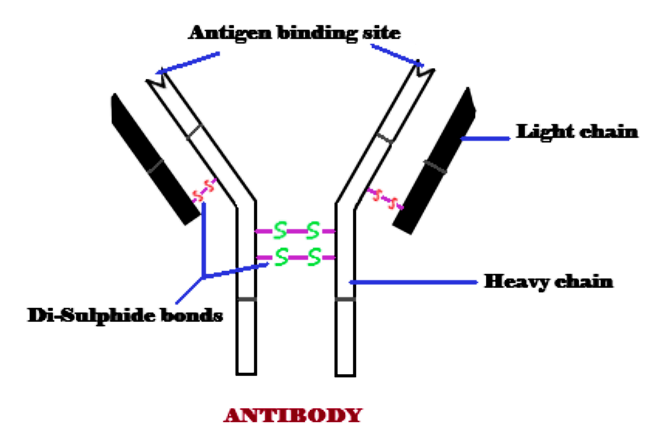Question
Question: ELISA follows the principle of A. Antigen-antigen reaction B. Antigen-antibody reaction C. Ant...
ELISA follows the principle of
A. Antigen-antigen reaction
B. Antigen-antibody reaction
C. Antibody-antibody reaction
D. Autoradiography
Solution
The ELISA test is a medical diagnosis that detects the body's immune responses. Lymphocyte cells are a part of the body's immune system and are a type of white blood cells that include T cells, B cells, and killer cells.
Complete answer: ELISA is a laboratory test designed to detect proteins, antibodies, hormones, and quantified peptides in blood. ELISA stands for Enzyme-Linked Immunoassay. An antibody is also known as immunoglobulin. The antibody is a protein produced by a plasma cell and is shaped like a large Y. Plasma cells are used to neutralize pathogens such as infection-causing bacteria and viruses. Immunoglobulins are glycoproteins, each containing four polypeptide chains of different sizes held together by di-sulfide bonds (S-S).

An antigen is a substance that causes the body to produce antibodies against it when it is introduced into the body. The ELISA follows the principle of antigen-antibody reaction which involves chemical interaction between antibodies and antigens. The B cells of white blood cells produce antibodies. Antigen-antibody reactions are also called serological reactions and are in-vitro. One of the reactions where antibodies and antigens combine is the agglutination reaction. In presence of electrolytes, particular antigens mix with the antibody at a suitable temperature and pH and get clumped or agglutinated.
In conclusion, the correct answer is option B-Antigen-antibody reactions.
Note: ELISA test can be utilized to diagnose several conditions such as AIDS, Lyme disease, detection of Zika virus, rotavirus, the varicella-zoster virus responsible for causing shingles and chickenpox, diagnosis of pernicious anaemia and syphilis toxoplasmosis. AIDS stands for acquired immunodeficiency syndrome caused by the human immunodeficiency virus (HIV). Lyme disease is an infectious disease caused by the bacteria, Borrelia bacterium which is transferred through tick bites.
